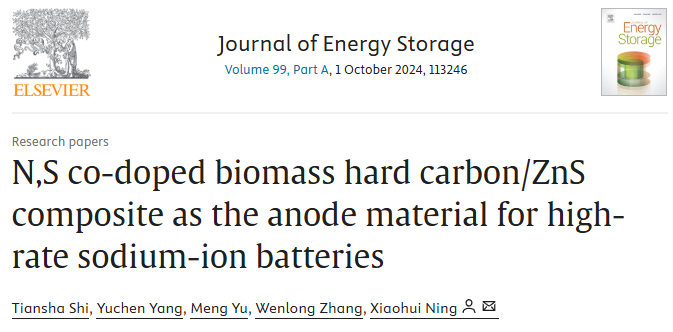
Sodium-ion batteries (SIBs) have attracted more and more attention owing to the low-cost and earth-abundant sodium resource. Nevertheless, the commercialization of SIBs has been hindered by the inadequate rate capability and low specific capacity of the anode materials. In this work, a N,S co-doped biomass hard carbon/ZnS (N,S-HC@ZnS) composite was synthesized by using molten-salt as template and a facile one-step carbonization strategy. The N,S co-doped carbon host enhances the electrical conductivity of the electrode and mitigates the large volume expansion of ZnS nanoparticles during sodiation/de-sodiation processes. The synergistic effect between hard carbon and ZnS, N,S-HC@ZnS enables a high reversible capacity of 369.7 mAh g−1 at 0.1 A g−1 after 100 cycles. Even at a high current density of 2 A g−1, the composite still delivers a commendable capacity of 308.33 mAh g−1 after 1000 cycles. Our findings offer a promising direction for the synthesis of high-capacity anode materials for energy storage applications.
Link:N,S co-doped biomass hard carbon/ZnS composite as the anode material for high-rate sodium-ion batteries - ScienceDirect